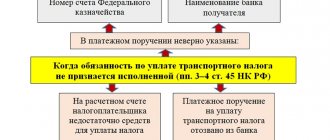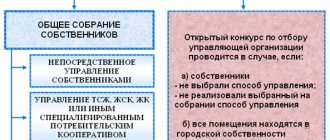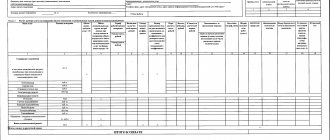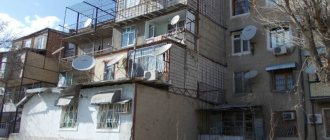Utility resources for the maintenance of common property
- cases and procedure for including in the amount of payment for the maintenance of residential premises the costs of paying for utility resources used for the maintenance of common property in an apartment building (hereinafter referred to as utility resources on the SOI);
- cases and procedure for calculating fees for utilities for general house needs (hereinafter referred to as UDN);
- new rules for purchasing from resource supply organizations (hereinafter referred to as RSO) utility resources used by management organizations, homeowners' associations, residential complexes, housing cooperatives for the maintenance of common property.
Question
For the first inclusion, a decision is not required at a general meeting of premises owners. This is enshrined in Part 10 of Article 12 of Law No. 176-FZ of June 29, 2020 “On Amendments to the Housing Code of the Russian Federation and Certain Legislative Acts of the Russian Federation” (hereinafter referred to as Law No. 176-FZ).
3. The specific form of participation of the owners of premises in an apartment building in the costs of maintaining common property depends on the method of managing the house. With the HOA management method, the amount of mandatory payments and contributions related to the payment of expenses for the maintenance of common property for owners of residential and non-residential premises is determined by the management bodies of the partnership based on the estimate of income and expenses for the maintenance of common property for the corresponding year approved by the general meeting. This conclusion corresponds to the legal position of the Presidium of the Supreme Arbitration Court, formulated in the resolution of November 9, 2010 in case No. 4910/10.
All current, urgent, mandatory seasonal work and services are considered provided for in the contract by virtue of the standards for maintaining the house as an object, and the management must carry them out regardless of whether they are mentioned in the contract and whether there is a special decision of the general meeting on the need for their implementation. This position was stated by the Presidium of the Supreme Arbitration Court in resolution No. 6464/10 dated September 29, 2010.
Work to replace the ODPU is included in
The essence of the dispute The owner refused to pay for heating because there are no radiators in his non-residential premises. The UO insisted on paying for utilities because heating pipelines run inside these premises.
Article 157.2 of the Housing Code of the Russian Federation talks about direct contracts that owners enter into with RSO, even if a management organization has been chosen for the house. We are talking specifically about public services. Consequently, there cannot be any direct contracts with RSO for the supply of communal resources .
- the contract must be terminated unilaterally by the resource supplying organization;
- RSO can refuse the agreement only if the management company has a debt recognized by it (I wonder how? - author) or confirmed by a court decision that has entered into legal force;
- the amount of debt must be equal to or exceed 2 (two) average monthly obligations of the management company to the RSO.
Reasons for switching to direct contracts with RNO
In these cases, utilities are provided for the maintenance of common property. In all other cases (that is, in the absolute majority of cases), it is communal resources .
- The terms of contracts with RSO are established on the basis of the mentioned Rules, the Civil Code of the Russian Federation and regulatory legal acts in the field of resource supply (to the extent not regulated by the Civil Code of the Russian Federation and the Rules).
- Depending on whether utility resources are provided for the maintenance of the common property of an apartment building or in order to ensure the provision of utility services and the acquisition of CDs on the SOI, the volume of the supplied utility resource is determined - this value must be indicated in the contract without fail.
- The rules for determining the volume of utility resources are established taking into account the features mentioned in paragraph 21(1) of the Rules, if the management company is not the provider of utility services (except for thermal energy) due to the fact that there is a direct agreement between the residents of the house and the RSO. That is, this procedure applies to agreements concluded by the executor for the purpose of maintaining common property in an apartment building, when:
- the resource supply agreement between RSO and the management company was changed due to the fact that RSO unilaterally refused to supply utility resources in order to provide public services (this right of RSO is provided for in clause 30 of the Rules);
- there is a valid direct agreement between the RSO and the residents of the apartment building, concluded before June 30, 2020 (if it was decided to maintain the existing rules for the provision of utilities and payments for their provision).
We recommend reading: Where is Series A Where is the Permit Number for Storage and Carrying of Hunting Pneumatic
Electricity supply on receipt
1. I had a debt for utility services, the management company notified me of the suspension of power supply, that is, the electricity was turned off, I connected it without permission, and after that I paid the debt, another receipt arrived and in it where is the column El. Energy costs 11,000 rubles, the management company said that this is a fine for unauthorized connection, the question is, is the fine imposed legally and does the management company have the right to do this?
1.1. Hello! Article 7.19. (Administrative Code of the Russian Federation) Unauthorized connection and use of electrical, thermal energy, oil or gas 1. Unauthorized connection to electrical networks, thermal networks, oil pipelines, oil product pipelines and gas pipelines, as well as unauthorized (unaccounted) use of electrical, thermal energy, oil, gas or oil products , if these actions do not contain a criminal offense - (as amended.
Federal Law of November 3, 2015 N 307-FZ)
Calculations between RSO and MC with a negative volume of KR and SOI
Error:
A management company that identified a negative difference between the volume of utility resources that must be paid by consumers of a multi-story building for the billing period (month) and the volume of utility resources determined by the indicators of the meter for the billing period (month). The management company reduced the volume of its obligations to the RSO by a negative amount, and it turned out that in the current billing month the obligations are equal to zero. The remaining part of the negative value was not taken into account in the future billing month.
Settlements between RSO and management company - main points
In the event that an apartment building was equipped with a common metering device for utility resources (a separate meter for each type of resource) used for the building's metering, the volume of utility resources for the maintenance of common property that must be paid according to the contract (we denote this volume as V(d)) – V under the contract), is determined based on the meter readings for the billing period (month) using the formula presented below:
Subparagraph “l” of paragraph 11 and paragraph 29 of the Rules for the maintenance of common property in an apartment building, approved by the RF Government of August 13, 2006 No. 491 (hereinafter referred to as Rules 491), establish that the maintenance of housing includes communal resources consumed in the use and maintenance of common property (KR SOI).
Who to pay for - utilities on - ONE
The owner of a residential premises in an apartment building appealed to the Supreme Court of the Russian Federation. She was outraged by the illegal charging for electricity above the approved standards. The owner made a claim against both RSO and UO simultaneously.
What is the problem
The management organization enters into a resource supply agreement with the RSO and only after that provides utilities to the residents of the apartment complex (clause 13 of RF PP No. 354). The management authority enters into an agreement with the RSO for the supply of all utility resources that are necessary to maintain the apartment building and ensure the comfort of residents.
Having calculated the share of electricity consumed by each homeowner, the management company adds it to the readings of individual meters, if installed, or to the standard and indicates it in the receipt for services.
Previously, the utility organization that managed the house could set the ODN for electricity by subtracting the energy consumed from individual apartment meters and general house readings. It was not possible to control how correctly each owner was invoiced under the ODN. And here some cunning, or, more simply put, fraud, of the management organization was acceptable.
We recommend reading: Benefits for disabled children in Belarus in 2020
What to do if there is no meter
Lamps that illuminate the previously listed common areas in and around the house consume a certain amount of electricity. Also an elevator and other communications that are in common use. Of course, these are expenses, and far from small for a year. These ODN are distributed to all owners of residential areas of the house.
If the management company or homeowners association owes the resource supplier money for more than two months, the contract with them may be forcibly terminated. To do this, the supplier must sue the management company and win it.
Some management companies work honestly: they do not overcharge, transfer money on time and do not distort information. Then the owners do not overpay, and the house is not listed as a debtor to the conventional energy sales or water utility.
Myths of housing and communal services: What is KR SOI (KU ODN)
Rules 354 establish the procedure for calculating the volume and cost of the CR SOI (CU ODN) for presenting them for payment to consumers as part of the payment for the maintenance of housing in favor of the person managing the apartment building - the management organization (MA) or the HOA. In turn, the Rules, mandatory when a management organization or a homeowners’ association or a housing cooperative or other specialized consumer cooperative enters into contracts with resource supply organizations, approved by the RF PP dated February 14, 2012 No. 124 (hereinafter referred to as Rules 124), approve the procedure for calculating the volume and cost of the Kyrgyz Republic SOI to present them for payment to the MA/HOA on behalf of the resource supply organization (RSO). In this section of the article, we note only one circumstance - paragraph 46 of Rules 354 and subparagraph “a” of paragraph 21(1) of Rules 124 provide for the possibility of obtaining a negative value for the volume of SOI CR. In this case, the volume of KR SOI (KU ODN) is not presented for payment (equal to zero).
What is KU ODN and KR SOI?
2. “Collective (community) metering device” - a measuring instrument (a set of measuring instruments and additional equipment) used to determine the volume (quantity) of a communal resource supplied to an apartment building (paragraph 8 of paragraph 2 of Rules 354).
On December 29, 2020, Decree of the Government of the Russian Federation dated December 28, 2020 No. 1708 was officially promulgated, which introduced significant amendments to the RF Government Regulation dated May 6, 2011 No. 354 regarding the calculation of the cost of heating utilities. The amendments came into force on 01/01/2020.
This publication is part of the series of articles “Myths of Housing and Communal Services”, dedicated to debunking false theories of the housing sector. Myths and false theories, widespread in the housing and communal services sector of Russia, contribute to the growth of social tension and the development of the “Concept of Enmity” between consumers and utility providers.
Popular answers to questions about housing and communal services
- Features of the transition to “direct contracts” in new buildings.
- Features of the transition to “direct contracts” in dormitories.
- Features of the transition to “direct contracts” in apartment buildings, the management organization of which was determined based on the results of a competition.
- Features of the transition to “direct contracts” in apartment buildings in which the share of the Russian Federation, a constituent entity of the Russian Federation or a municipal entity in the right of common ownership of common property in an apartment building is more than 50%.
A reduction in payment can occur for various reasons, for example, due to the fact that the family is low-income, a disabled citizen lives in the apartment, etc. The application must be in writing. It can be submitted either directly to the organization that provides the service or through a multifunctional center. The application can be completed by the resident or a representative.
This document is published separately. The law sets the tariff, after which the consumption rate is determined. It can be calculated based on apartment metering devices or common house meters installed in the basement.
What is included in the rent, utility bills and on what basis is the rent amount in the receipt formed?
Most of the standards and payments have not changed at all. Most of all the changes affected the SOI in the MKD for electricity. According to the new rules, now, if a common house has an attic and a basement, then you have to pay for their area too. Previously, there was no need to pay for these premises. Now payments for general household needs may increase significantly.
Most of the standards and payments have not changed at all. Most of all the changes affected the SOI in the MKD for electricity. According to the new rules, now, if a common house has an attic and a basement, then you have to pay for their area too. Previously, there was no need to pay for these premises. Now payments for general household needs may increase significantly.
How to reduce the fee for CD on SOI
If the apartment building has communal meters and the OSS has not approved the procedure for paying for CDs on SOI, then the calculation will be carried out according to regional tariffs with recalculation. The issue of recalculation for such situations is described in more detail in a separate article in the journal “MKD Management”.
We recommend reading: Do Bailiffs From Regions See Maps of Moscow
Apartment owners need to be explained that approving the procedure for paying the Kyrgyz Republic for SOI in housing and communal services is a way to save money. Owners do not have to be told about the intricacies of applying the standards and indications of the ODPU. The main thing is to show them real savings. The leaflet below will help with this.
What is SOI in housing and communal services
Many residents of apartment buildings will see different values in the new payment bills instead of the usual ODN. There will now be cold water supply SOI, hot water supply and electricity. But no one likes to pay for incomprehensible abbreviations, so it’s worth figuring out what it is and why. If everything is clear with SOI Electricity, then the remaining two do not look so accessible.
For what purpose were the changes made?
It is worth trying to calculate the SOI for cold and hot water, electricity. All these general needs of the economy have standards that vary in each area. It is not difficult to decipher this formula; its general form looks simple. The approved consumption standard must be multiplied by the total area of all residential premises - entrances, attics, etc. This amount is then multiplied by the area of the premises owned and divided by the total area of all residential and non-residential premises. The areas that the house has can be viewed in the technical passport. The resulting amount is multiplied by the housing and communal services tariff for water supply or electricity consumption.









